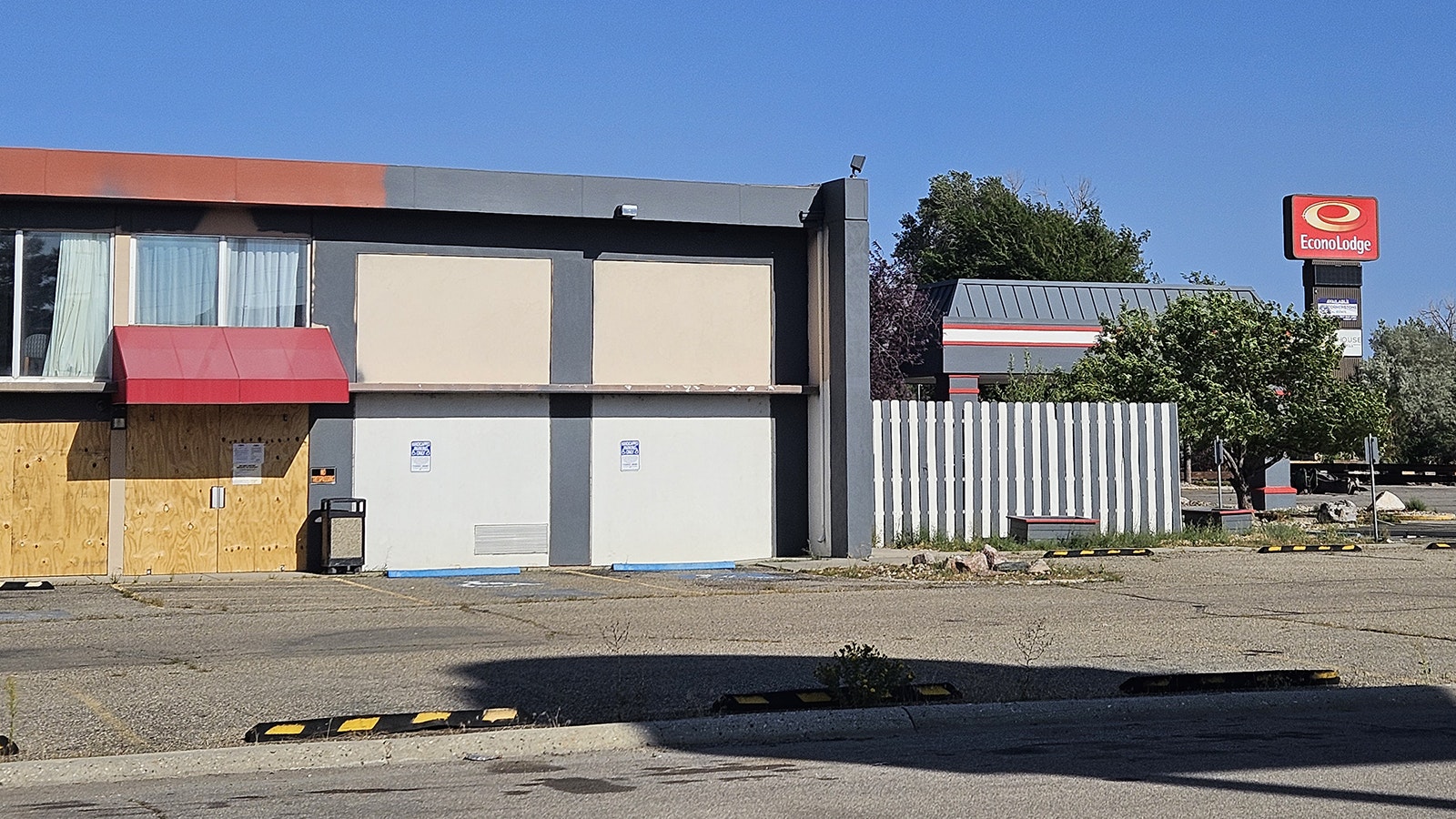Casper’s police chief is urging Wyoming lawmakers to craft criminal penalties against squatting. Now, at least two bill drafts are in the works.
Gaining in attention and prevalence in national media, the issue of squatting has reached Wyoming and now costs property owners collectively millions of dollars, Casper Police Chief Keith McPheeters said Tuesday during a public meeting of the Wyoming Legislature’s Joint Judiciary Committee.
McPheeters urged the committee to draft a proposed law allowing police to act when squatters or people occupying a property unlawfully take over someone else’s building during their absence.
Often, savvy squatters will produce a phony document attesting that they’ve rented or subleased a residence from someone else, which then forces the homeowners to go through an eviction process and months of civil court proceedings, McPheeters told the committee.
“This thing (drags) out through eviction processes and long extended court battles, that are never intended to be won. It’s just a delaying tactic until they get to their next victim,” the chief said.
He gave a hypothetical of an older couple that may winter in Arizona, but come home to their Wyoming home in the spring to find people living there, eating all the food and destroying the home. The squatters demean the community and drive down property values.
The couple would be stuck with trying to evict the people and prove that their rent documentation isn’t valid, all while living out of a hotel and surviving on restaurant food, McPheeters said.
Often, squatters’ domains are crime hubs, he added, listing “sexual assaults, fires, drugs — horrible things of all kinds are occurring.”
He said vacant businesses, homes caught in the probate system, absentee homes, homes in foreclosure and other processes all can be victimized by squatters.
McPheeters said he wants to be sensitive to the needs of Casper’s homeless population, which he’s routinely described as growing. But he said he hopes state legislators will consider a criminal sanction to “this criminal conspiracy to occupy someone else’s property under pretense.”
Already In The Works
Sen. Jim Anderson, R-Casper, is not on the Judiciary Committee. But he’s preparing to bring a bill to the 2025 legislative session that would classify squatters as criminal trespassers, he told Cowboy State Daily on Tuesday.
He said a constituent who was accosted by six squatters in her home brought the issue to his attention.
“Some states say (squatters) are residents and tenants,” said Anderson. “But they’re not.”
Anderson said his bill will be modeled after Florida’s recent anti-squatter legislation. It allows a property owner to request law enforcement to immediately remove a squatter from his or her property if the squatter has unlawfully entered and remains on the property, has been told to leave but hasn’t, and is not a current or former tenant.
Rep. Ember Oakley, R-Riverton, who also is the second-in-command prosecutor in Fremont County, floated the idea of sketching an anti-squatting law from language already in the state’s forgery statutes, which criminalize deceptive and fraudulent efforts to take others’ property.
She made a motion for the Legislative Service Office to craft a bill draft, which the committee approved.
Pay For It Though
It’s one thing for the Legislature to craft more laws, but they won’t mean much if the state doesn’t fund its prosecutors well enough to enforce them, Natrona County District Attorney Dan Itzen told the committee.
Itzen said he’s been with his office for 24 years and has seen numerous changes, with many societal hardships and crimes interrelated.
“My office has not seen an increase in personnel in 20 years,” said Itzen.
He said some provisions of law require fast-paced court action, producing a “rocket docket” that can leave some pieces of evidence out of the trial evidence pool, even for serious crimes.
He said prosecutors struggle to meet a 30-day deadline on presenting all their evidence in a trial preview when they’re up against the crime lab’s longer timeframe, and their own efforts to persuade judges to allow more controversial evidence.
Itzen’s office is handling 111 felonies now, he said.
Oakley pressed Itzen to suggest a solution.
He said prosecutors will need more resources to enforce more laws. And he suggested an anti-squatting statute barring people from signing onto a lease that they either “know or should have known” was fraudulent.
For example, he said if someone is signing a $100-per-month lease for a 3,000-square-foot, furnished home, the person should know the lease is probably fraudulent and should be penalized for accepting it, if the result is they’re squatting in someone’s home.
Tread Carefully
Committee Co-Chair Rep. Art Washut, R-Casper, asked if police could simply arrest squatters and get them out of people’s homes, even if the prosecutor’s office doesn’t have time to follow up with charges.
Itzen said he doubted such a system would produce long-term deterrence.
Rep. Karlee Provenza, D-Laramie, voiced alarm and urged caution.
“If we’re going to do something (we need) to make sure we’re not cutting the legs out from, potentially, renters that are lawfully renting,” said Provenza.
She urged the committee against drafting a law that would empower landlords to spontaneously evict legitimate tenants after disputes.
Wyoming has a housing crisis in several areas and a growing homelessness issue, she said.
“This is solving a symptom of a very difficult disease,” said Provenza.
McPheeters said it’s not the city of Casper’s intent to outlaw homelessness or exacerbate that issue.
Provenza later added that her city, Laramie, is having these issues as well.
State’s Turn
Like McPheeters, Casper City Councilman Kyle Gamroth urged the state to act.
He said if Casper keeps expanding its services for the homeless, it will only attract more homeless people who might “be better served” in their original communities. Some of the newcomers genuinely want a leg up and to improve, some “just want to take advantage of those loopholes and take advantage of the system.”
Between 10% to 15% of Casper’s homeless who come to the local shelter, the Wyoming Rescue Mission, are from Wyoming “at-large,” while 65% are from Natrona County, he said. Another 5% to 10% are from other states.
Both Gamroth and McPheeters answered no to questions about whether the homeless problem is a result of undocumented aliens.
In This City
Casper has tried to “shore up” its own ordinances, but it’s not enough, McPheeters said.
While Wyoming has on the books felony and misdemeanor penalties for property destruction, squatters can only be prosecuted for destroying people’s homes if they did it “knowingly.”
Some squatters incidentally destroy things as they’re negligently conducting their lives in someone else’s home, said the chief, adding that some homeowners give up the fight.
“We’re still stuck holding the bag (for absentee owners) who just don’t give a crap anymore,” said McPheeters, adding that the city, out of “matters of pure public safety,” has to formally condemn multiple structures in town.
He said he wishes those homes could go onto the housing market instead to ease the housing crisis.
Clair McFarland can be reached at clair@cowboystatedaily.com.





